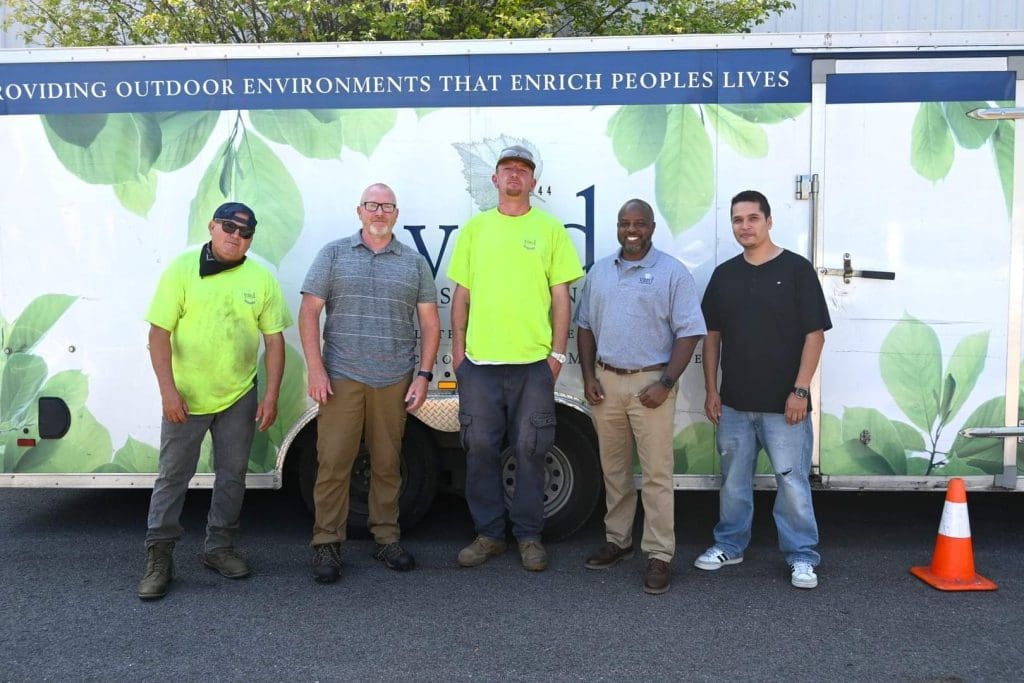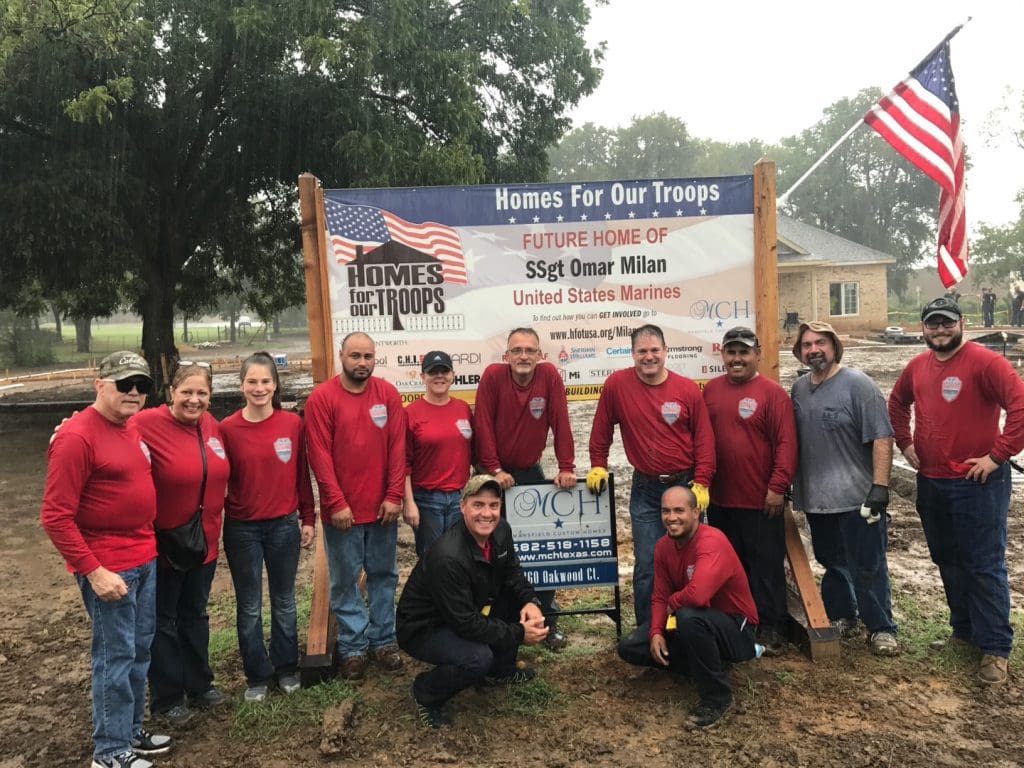
How much do the landscape industry and the military have in common? More than you might think. While installing and caring for beautiful properties isn’t a life-or-death situation, it is still a mission to complete with a team and something that can resonate with many veterans as they transition to the private sector.
Veterans bring with them a number of transferrable skills that can make them excellent employees at your lawn or landscape company.
“The MOS, military occupational specialties, has virtually every skill set position we need to build a successful workforce,” says Tim Vela, CEO of United Veterans Construction and Landscape Solutions, Inc., based in Fort Worth, Texas. “These MOSes range from recruiters, supply chain management, fleet services, planning/logistics, human resources, and finance. The frontline production is your infantry soldiers. These veterans might not have spent a career in the military but fulfilled their contract to serve. They have about 3-5 years of military service and a tremendous amount of training during that timeframe.”
The military runs on a clock and so does the landscape industry. Veterans have a strong work ethic and well-developed organizational skills.
“Veterans recognize the need for continued training and development both personally and professionally,” says Joe Lewis, chief operating officer for Yard Solutions, based in Groveport, Ohio. “It is required while in the service, and that habit transitions well to our industry.”
Because the industry is well-suited to attracting veterans, being intentional and ready to recruit veterans can help you tap into this qualified employee pool.
What Is Veteran Ready?
John Janes, sales and marketing support manager for Caterpillar, says the veteran community typically spends their formative years in a values-based organization and organizations not focused on values are never going to be veteran-ready.

“First and foremost, the two things that really resonate with veterans is take care of your people and complete the mission,” Janes says. “In the military, it’s reversed. It’s complete the mission and take care of your people. Here in the civilian world, we’re not focused so much on life-and-death situations, so job one is to take care of your people. That takes many forms. I think the simplest form is acknowledging the worth and value of every team member and every customer.”
You can drive home your company’s commitment to your values during your onboarding process, where you go over your values, your mission statement and your code of conduct. Janes says your code of conduct is the single most important policy to have in place for veterans as it covers 99% of the day and the decisions that someone has to take.
“All of those words really resonate with the veterans because, depending on the branch, they spent two to three months being onboarded into the military with ‘This as our code of conduct. These are our values. This is our mission statement,’” Janes says.
Vela stresses that there is no set road map to pursuing ‘veteran-readiness.’
“For us, being veteran-ready was about getting deeper into the weeds about the challenges our veterans face during their service and how some of those challenges might carry over to the civilian workplace,” Vela says. “So, whether it is a physical, mental or a skill set issue, we want to be part of the solution. This means being open to learning, listening, and adapting our readiness. The fact is this takes time, effort, and commitment. It also takes a level of tolerance and patience, but all worth the investment.”
Lewis says that landscape companies need to understand the value that veterans can bring to the team.
“The owner of Yard Solutions, Eric Remeis, said it best,” Lewis says. “He said he always respected veterans for their service and sacrifice, but didn’t truly understand the value added to the business or the business acumen learned from a career in the military. Eric chose to read various books on military leadership and transitioning veterans, which he felt gave him better insight to our way of operating. He felt it helped him better understand veterans’ capacity related to our business and industry. This was the most honest introspective I have heard from a business owner who has not served.”
Since May 2022, Yard Solutions has hired four senior-level veterans and brought on two veterans through the DoD SkillBridge program.
Attracting Veterans
Vela says they started actively recruiting veterans in 2016 and determined that because veterans are accustomed to structure and well-defined environments, the company needed to have a clear vision that would speak to them. He says they also had to be intentional about building their culture so that when a veteran walks their halls for an interview, they can see and feel their vision at work.

Vela says the attributes of a professional lawn or landscape company that veterans look for include teamwork, accountability, selfless service, purpose, and professional development.
“Veterans are extremely team-oriented,” Janes says. “Even those who had roles that were individually focused had to work within the construct of a team. Here in landscaping, we have teams and groups and divisions and branches. From a veteran’s perspective, that’s exactly the same as my squad, my platoon, my company, my battalion.”
Lewis agrees that your company culture is what will attract veterans.
“Veterans are performance-driven people that thrive in an environment that is performance-based, but people-driven,” Lewis says. “Character, integrity, and believing you are making a difference in other people are often shared values for all veterans. Profitability is not a bad word, but understanding that we are in the people business and ensuring that is communicated throughout all team members will enable a company to attract veterans.”
Janes says that treating veterans with respect and as individuals instead of an asset is critical.
“Veterans are very highly oriented to doing difficult work in uncomfortable situations like 110-degree weather being out there in that heat all day long,” Janes says. “They were trained to do that. It was only by somebody leading them as people, as individuals, that it works.”
Janes adds that veterans thrive at companies where they have a routine set of tasks but are able to rise to the challenge when there are unexpected emergencies like a water break at a customer’s property.
“Having a proactive approach to accomplishing goals works best for veterans,” Lewis says. “Combat leaders have a plan, so why can’t we have well-thought-out plans in our industry? Veterans are comfortable managing chaos, but do not want to brood in it.”
For more information on becoming veteran-ready and to connect with veterans in the green industry, join NALP’s Veterans in Landscape Network.




